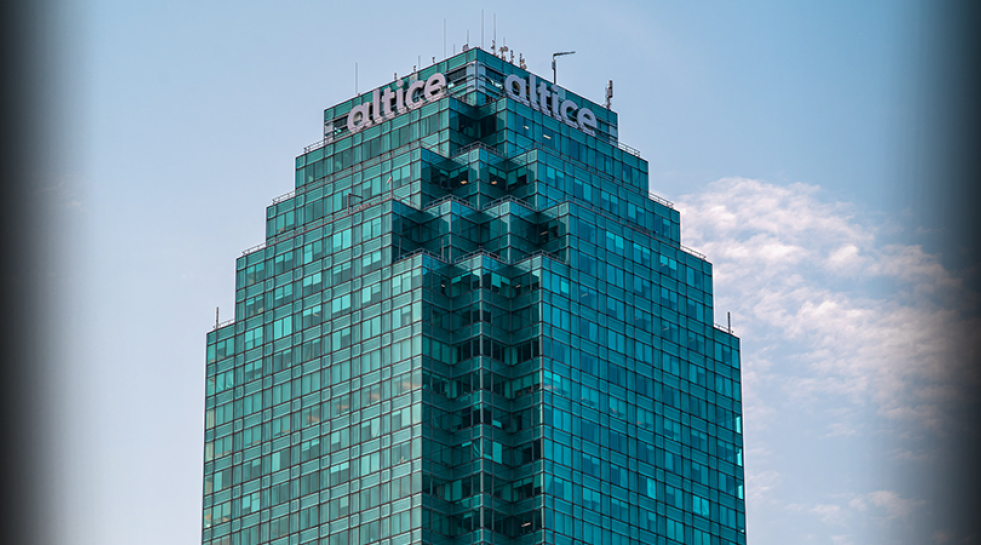Analyst Makes Case for Altice USA To Go Private
MoffettNathanson's Craig Moffett writes that selling off Suddenlink, going private one way to unlock hidden value

The smarter way to stay on top of the multichannel video marketplace. Sign up below.
You are now subscribed
Your newsletter sign-up was successful
Influential media analyst Craig Moffett took a deep dive into Altice USA Wednesday, issuing a 39-page report that says with broadband growth behind its peers and doubts that its rural markets can take up the slack, one way to unlock its value would be to take the company private.
Altice USA stock has been battered over the past few months, dropping more than 20% since July 28 when it released Q2 results that showed zero broadband subscriber growth at a time when its larger peers are watching their high-speed data rolls rise. In his report, Moffett, principal and senior analyst at MoffettNathanson, noted that despite that sluggish performance, Altice USA’s sum-of-the-parts valuation indicates that Wall Street perhaps has the cable company all wrong.
While Moffett admitted that Altice USA has a “broadband pricing problem,” that there is some doubt that efforts to boost broadband customers in its more rural Suddenlink footprint will offset subscriber declines in its more metropolitan Optimum footprint, even conservative valuations of its four major geographies indicate a much higher value for the company than Wall Street has assigned.
“There’s a price for everything … and, to put it bluntly, this ain’t it,” Moffett wrote. “Altice’s current valuation is simply too cheap, and by a huge margin.”
The notion of going private at latest appeared to be attractive to some investors. Altice USA shares were up nearly 4% ($1.05 each) in early trading Sept. 8 to $28.19 per share. The stock was priced at $27.94 at 12:57 p.m. Wednesday, up 3% or 81 cents each.
Given the high valuations for recent private cable deals, including Altice’s own purchase of Service Electric Cable of NJ (10 times consensus cash flow) and its March agreement to buy North Carolina broadband provider Morris Broadband (24 times), Moffett assigned an 11.7 times multiple to Suddenlink, a 10.1x multiple to legacy Optimum systems and a 14.6 times multiple to its Lightpath division, pushing the combined company’s estimated trading multiple to 10.8 times forward looking cash flow. At that multiple, Moffett estimated that Altice USA stock should be priced at $51 per share, nearly double its Sept. 7 close of $27.25 each.
Moffett added that to take Altice USA private, the company would have to pay a premium to its current stock price, but at $30, $35, $40 or even $45 per share, that option would appear to be a bargain.
The smarter way to stay on top of the multichannel video marketplace. Sign up below.
Going private is nothing new for cable operators, and usually is driven by the perception that the public market is severely undervaluing assets. Mediacom Communications was the last major publicly traded cable operator to go private in 2011, and has had tremendous success as a private company. In 2004, Cox Communications went private in a deal valued at $8.5 billion, and hasn’t looked back since.
The analyst added that in one scenario, Altice USA could sell off its Suddenlink division at an 11.7 times multiple (implying a selling price of $22.7 billion) and Lightpath for 14.6 times cash flow (implying a $1.57 billion sale price), while retaining the Optimum business by purchasing the remaining public float. Moffett estimated that at a $35 per share take out price and the sale of Suddenlink and Lightpath, Altice USA could take itself private — debt free — for about $7.9 billion. At $45 per share, the total cost would rise to $10.3 billion.
Moffett stressed that going private is not something he is suggesting that Altice USA will do, but is something they could do. And there are also several possible iterations of the going private option, he wrote.
“The takeaway here is that, even with a meaningful premium, the current valuation is so cheap that it creates enormous optionality,” Moffett wrote, adding that Altice USA has been doing its own “modified take-private” for years.
Moffett noted that since separating from Altice N.V. in 2018, Altice USA has made about $7.7 billion in share repurchases, reducing its total shares outstanding by about 38%. Excluding the ownership stake held by Altice N.V. chairman Patrick Drahi, and Altice USA has reduced its public float by more than half.
“Indeed, it may be the case that Drahi would conclude that it is more attractive to simply stay the course and retire shares until the remaining float is so small that almost any premium paid to complete the job would be financially immaterial,” Moffett wrote. He estimated that Altice USA, if it maintains its leverage target of 4.5 times to 5 times cash flow, would buy back about $8.5 billion of its stock through 2025.
“Altice could go private, sell select assets — we highlighted Suddenlink just because we suspect it would be so easy to sell — and own what's left for... well, for nothing at all,” Moffett continued.
Mike Farrell is senior content producer, finance for Multichannel News/B+C, covering finance, operations and M&A at cable operators and networks across the industry. He joined Multichannel News in September 1998 and has written about major deals and top players in the business ever since. He also writes the On The Money blog, offering deeper dives into a wide variety of topics including, retransmission consent, regional sports networks,and streaming video. In 2015 he won the Jesse H. Neal Award for Best Profile, an in-depth look at the Syfy Network’s Sharknado franchise and its impact on the industry.

